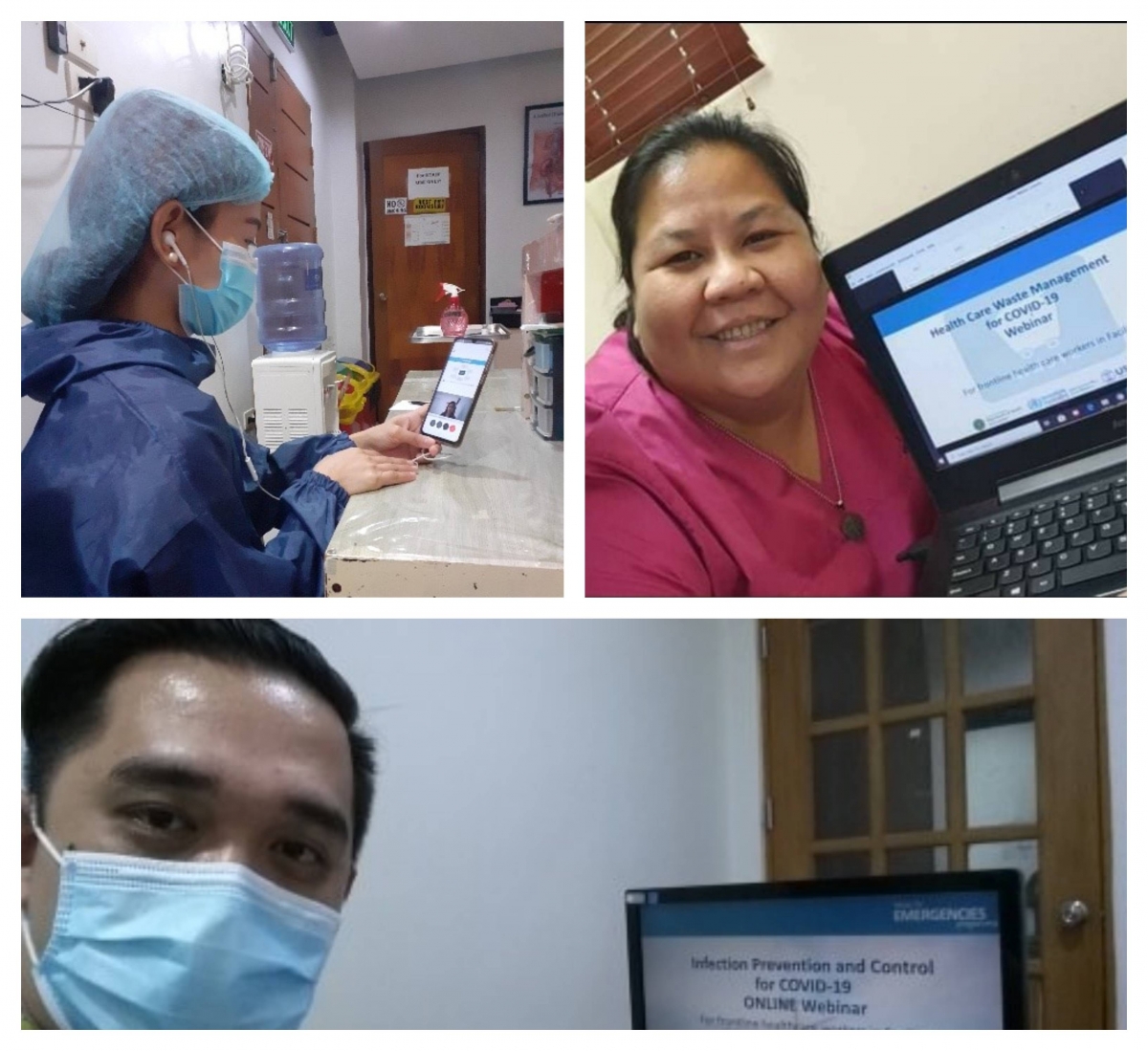An Innovative e-Hub Rapidly Builds Philippines’ Capacity for COVID-19
As countries scrambled to respond rapidly to the COVID-19 pandemic, the Philippines Department of Health (DoH) faced a testing crisis. The primary objectives of DoH are to ensure that emergency services keep up with the changing situation, to protect people’s health, and to keep the health system functioning. As the country went into lockdown in March to contain the spread of COVID-19, it fell on the DoH to meet a tough demand: how to quickly provide the necessary training to health workers to respond to the pandemic while under a community quarantine?
The USAID-funded MTaPS Program supported the DoH by rapidly developing and implementing an innovative e-training hub to equip health care workers with the necessary skills in critical response areas. Launched on April 8, the virtual registration and training hub started out with offering a real-time course on infection prevention and control (IPC) and added two more news courses in health care waste management, and emergency supply chain management, all tailored to COVID-19. MTaPS is backing the virtual capacity building with tools to assist DoH with quantification, commodity tracking, and logistics services responsive to the needs of emergency supply chains.
Since the e-training hub’s launch in April, MTaPS has trained over 11,000 health workers from various public and private facilities from all regions of the country. The number of trainees continues to grow as all three training courses are conducted virtually twice weekly.
MTaPS is providing virtual training so that physical distancing can be maintained while health workers receive the necessary information. The training is a series of online sessions that cover basic COVID-19 knowledge to date and the roles of IPC, health care waste management, and emergency supply chain management in the context of preparedness, readiness, and response to COVID-19.
The e-training hub offering free COVID-19 training courses has become a popular go-to resource in the Philippines, drawing attention from mainstream media channels in the country and investment from the government of its own staff to ensure the success of the courses.
“Supply chain management of health commodities is essential for ensuring uninterrupted services at the health facilities. Due to the uncertainties associated with COVID-19 related emergencies, along with the commodities supply, health facilities must be trained on supply chain management to ensure optimum distribution and use of the commodities to achieve maximum impact from our fight against COVID-19. I am happy that DoH, in partnership with USAID, has launched a timely and appropriate training for our health facilities providing COVID-19 services,” commented Ms. Carolina Taino, Undersecretary of DoH, on the launch of the e-training module on health care waste management.
A number of participants have found the sessions to be very informative, relevant, and timely.
“The panelists were able to answer questions that were frequently encountered in hospitals based in the provinces, such as alternatives for alcohol and disinfection practices when materials are scarce,” shared Dr. Ma-an Jane Diamos, from Castro Maternity and General Hospital Renal Center.

Some of the course participants.
Another trainee, Gerald C. Piñon, an IPC nurse from Ospital ng Imus hospital, who attended the training on supply chain management for COVID-19 shared, “What I liked the most about the training was the presentation on the important points that we must all remember from requisition to procurement to good storage, up to the point of use. It provided basic and important points on maintaining and sustaining a good supply chain.” He further added,
“In this time of pandemic [with] a lot of donations from disinfectants to sets of PPEs, I highly agree that such donations should be checked for material integrity, efficacy, and other parameters for the safety of the end user, the patient, the hospital, and the public.”
MTaPS’ virtual training is part of a coordinated COVID-19 response in the Philippines through a partnership of DoH, USAID, WHO, and UNICEF. The training aims to reach more health workers across the country to maximize DOH’s ability to control the spread of COVID-19 and rapidly and efficiently deliver essential health commodities, including PPE for health care workers needed during this crisis.
MTaPS’ training information reached wide audiences through a national broadcast by the Philippines’ ANC news channel:
MTaPS’ COVID-19 support on emergency supply chain builds on the program’s ongoing support to DoH to help build an integrated and effective health supply chain management system. The enhanced abilities to manage the supply chain during emergencies and the new virtual training platform are not only building resilience in Philippines’ health care system but will continue to reap sustainable benefits on an ongoing basis, well beyond the times of pandemics.
Interested participants may visit the MTaPS virtual training hub for more information.